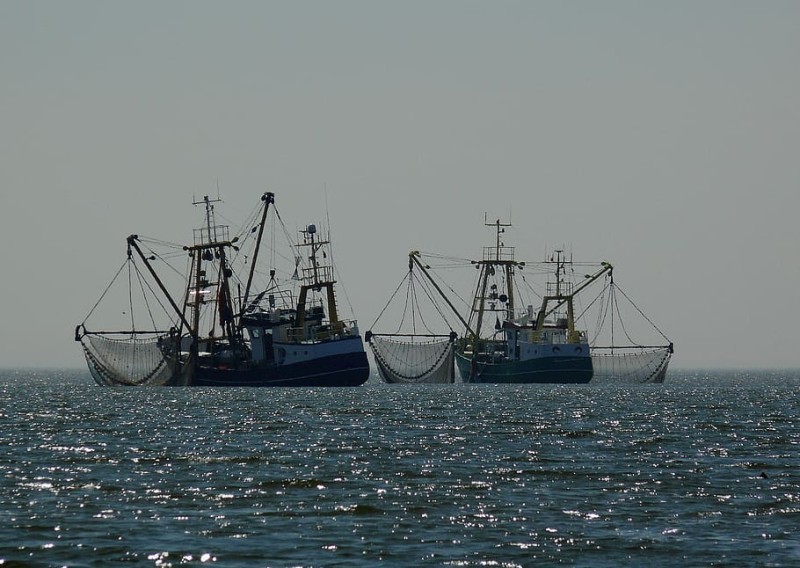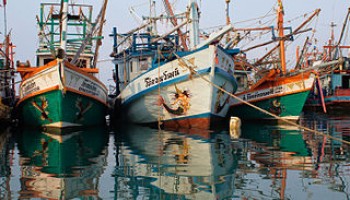China’s distant water fishing fleet (CDWF) has been a menace to coastal nations, especially developing ones, fishing in their Exclusive Economic Zones (EEZ) around the world.
“Driven by the depletion of fish populations in its own national waters and its role as a key processing and exporting state, the Government of the People's Republic of China has supported the rapid expansion of the scale and technological capacity of its distant water fishing fleet,” explained the Environmental Justice Foundation (EJF).
“China has by far the largest of such fleets, operating across the globe in both areas beyond national jurisdiction and in the EEZs of coastal states,” it said in a report on the fleet published last week.
The report is among the first to document the environmental and social impact of the massive fleet.
Numbering nearly 3,000 ships, over the years the fleet has shifted from being owned and officially controlled by the Chinese government, to private ownership, and a more vague relationship with the state.
“It has been argued that this gradual change in ownership structure has loosened the Chinese government’s control over the activities of Chinese fishing enterprises,” EJF said, but that lack of oversight may have only made it more dangerous.
In July 2020 the fleet almost caused an international incident with Ecuador, when it descended on protected waters around the Galapagos islands. It’s ships have been known to switch off their tracking systems, to pilfer not just other countries EEZs but even their territorial waters.
Regardless of who's actually at the fleet's helm, it has the clear blessing of Chinese authorities in the form of significant state subsidies, and it’s work accounts for more than a 5th of the nation's fish supply. In 2019, it received more than US$1.8 billion from the Chinese government to offset the price of fuel and other necessities.
It has frequently been caught engaging in illegality and human right abuses.
“EJF’s field based investigations, … have identified a wide range of IUU (illegal, unreported and unregulated) fishing offenses, such as shark finning and fishing in restricted areas, as well as human rights abuses such as physical violence, debt bondage and confiscation of passports,” said the report.
Just under half of the offenses EJF documented related to IUU fishing, while a 10th of them involved the capture of prohibited species, such as endangered animals.
IUU fishing can have a significant a detrimental effect on local ecosystems, often endangering one of the primary sources of subsistence in developing coastal nations.
The rapid growth of the Chinese Distant Water Fleet (CDWF) over the past three decades has put additional pressure on marine ecosystems, and all of those who rely on them, the report found.
However, The fleet is often as much a threat to its crew as it is to its catch.
As the CDWF comes under more scrutiny, the systemic nature of human rights abuses on board its vessels is becoming apparent,” said the report. “Given the extent of its distant water operations and the high-instances of IUU fishing amongst this fleet, this is maybe unsurprising - considering the inherently intertwined nature of IUU fishing and human rights abuses.”
On one Chinese ship, the LONG XING 629, four Indonesian crew members died in a four month period due to conditions onboard.
“The appalling response of the captain to the poor health of his crew, and their untimely deaths, drew attention to the living and working conditions onboard the vessel,” EJF said.
The Indonesian crew were kept at sea for 13 months, worked 18 hours a day and their wages were deducted. They had their passports confiscated and 22 of them shared one toilet. The men had to eat fish that was otherwise used as bait and drink poorly treated salt water. On the top of that, they were physically assaulted by the Chinese crew, the report said.
In another group of ships, 13 crew members were stranded in Somalia, and pressed into forced servitude after the ship’s owners refused to repatriate them home at the end of their contract.
It’s up to the Chinese Government and its international partners to address the often “unsustainable” manner in which the fleet operates, EJF said.
“Whilst this may initially be associated with some costs, ultimately, no-one benefits from depleted fish populations, and addressing the existential threats to many ocean ecosystems will bring with it financial benefits,” it concluded.





